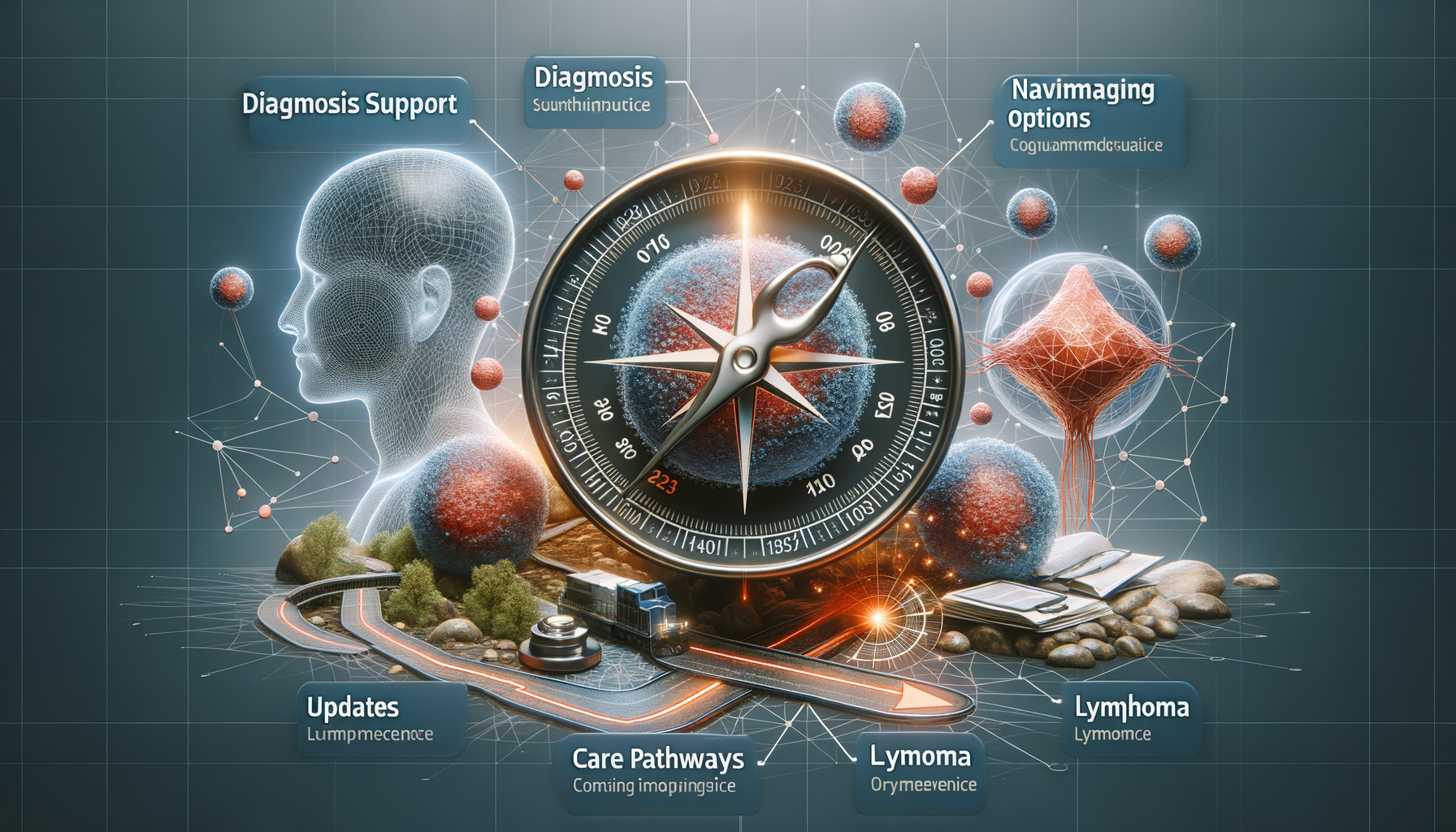Understanding Lymphoma Diagnosis Support
Diagnosis support for lymphoma is a critical component in the journey of managing this complex condition. Lymphoma, a type of blood cancer that affects the lymphatic system, requires precise and timely diagnosis to ensure the most effective treatment. The process typically begins with a thorough medical history and physical examination, followed by a series of diagnostic tests. These may include blood tests, imaging studies such as CT or PET scans, and biopsies of lymph nodes or other affected tissues. Each of these steps plays a crucial role in identifying the specific type of lymphoma, its stage, and the overall health of the patient.
Advancements in technology have significantly enhanced diagnosis support, offering tools that provide more accurate and faster results. For instance, molecular testing and genetic profiling are now commonly used to gain deeper insights into the disease, allowing for more personalized treatment plans. These innovations not only improve the accuracy of diagnosis but also help in predicting the response to certain therapies, thus tailoring treatment to individual needs.
Moreover, the role of healthcare professionals in providing emotional and informational support during diagnosis cannot be overstated. Patients often face anxiety and uncertainty, and having a supportive team that includes oncologists, nurses, and counselors can make a significant difference. This comprehensive support system ensures that patients are well-informed about their condition and treatment options, fostering a sense of empowerment and involvement in their care journey.
Exploring Care Pathways in Lymphoma Treatment
The care pathways for lymphoma are designed to provide structured and evidence-based approaches to treatment. These pathways aim to streamline care, reduce variations in treatment, and ensure that patients receive the most effective therapies available. Typically, care pathways for lymphoma include a combination of chemotherapy, radiation therapy, immunotherapy, and in some cases, stem cell transplantation.
Each treatment plan is tailored to the individual patient based on the type and stage of lymphoma, as well as the patient’s overall health and preferences. For instance, aggressive types of lymphoma may require intensive chemotherapy regimens, while indolent forms might be managed with a watch-and-wait approach or less aggressive treatments. The integration of new therapies, such as CAR T-cell therapy, has further expanded the options available, offering hope to patients with refractory or relapsed lymphoma.
Care pathways also emphasize the importance of supportive care, which addresses the physical, emotional, and psychological needs of patients. This includes managing side effects of treatment, providing nutritional support, and offering counseling services. By focusing on the holistic needs of patients, care pathways aim to improve quality of life and treatment outcomes.
Recent Updates in Lymphoma Treatment
The field of lymphoma treatment is continually evolving, with new research and clinical trials leading to innovative therapies and improved outcomes. Recent updates in lymphoma treatment have focused on targeted therapies, which aim to attack cancer cells more precisely, minimizing damage to healthy cells. These therapies are particularly beneficial for patients who do not respond well to traditional treatments.
One of the significant advancements in recent years is the development of monoclonal antibodies and small molecule inhibitors, which target specific proteins involved in the growth and survival of lymphoma cells. These targeted agents have shown promise in treating various types of lymphoma, offering new hope to patients with limited options.
Another exciting development is the use of immunotherapy, which harnesses the body’s immune system to fight cancer. Immune checkpoint inhibitors and CAR T-cell therapy are among the most promising approaches, showing significant efficacy in treating certain types of lymphoma. These treatments are often used in combination with other therapies to enhance their effectiveness and reduce the risk of relapse.
The Role of Supportive Care in Lymphoma Management
Supportive care is an integral part of lymphoma management, focusing on enhancing the quality of life for patients throughout their treatment journey. It encompasses a wide range of services, from managing physical symptoms to providing emotional and psychological support.
Physical symptoms such as fatigue, nausea, and pain are common among lymphoma patients, and addressing these effectively can significantly improve a patient’s well-being. Healthcare providers often employ a multidisciplinary approach, involving oncologists, nurses, pain specialists, and nutritionists to manage these symptoms comprehensively.
Emotional and psychological support is equally important, as a lymphoma diagnosis can be overwhelming and stressful. Counseling services, support groups, and mental health professionals play a crucial role in helping patients and their families cope with the emotional challenges of cancer. By providing a supportive environment, patients are better equipped to handle the rigors of treatment and maintain a positive outlook.
Conclusion: Embracing Comprehensive Care
In the ever-evolving landscape of lymphoma treatment, embracing a comprehensive approach that integrates diagnosis support, care pathways, and supportive care is essential. By staying informed about the latest advancements and actively participating in their care, patients can navigate their treatment journey with confidence and hope.
The collaborative efforts of healthcare providers, researchers, and patients themselves are crucial in advancing the field of lymphoma treatment. As new therapies and technologies continue to emerge, the future holds promise for improved outcomes and a better quality of life for those affected by this challenging disease.
Ultimately, the goal is to provide individualized care that not only targets the disease but also supports the overall well-being of patients. By focusing on the whole person, healthcare providers can ensure that patients receive the best possible care at every stage of their journey.




Leave a Reply